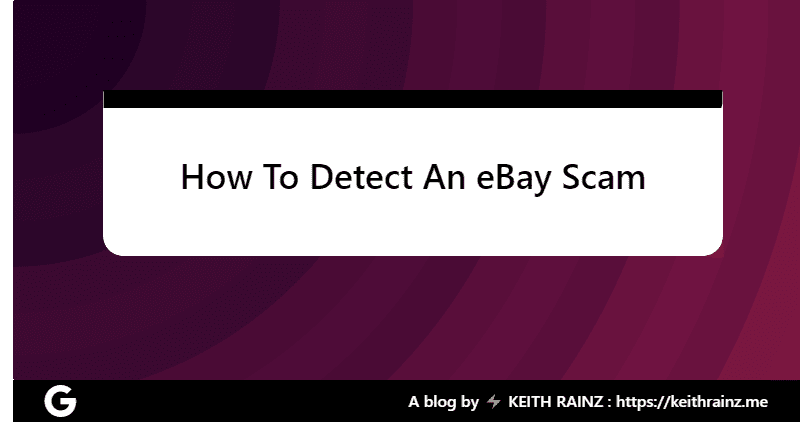Learn How To Detect An eBay Scam. If this is the case, the buyer’s warning signal should go off because if something on E-bay appears to be too good to be true, it most likely is, and it may not even be worth the buyer’s time and money.
How To Detect An eBay Scam
Today’s Internet is littered with frauds and scams, and E-bay is no exception. As a result, it’s critical for buyers to spot early signs of fraud before it reaches them. Here are some key points to keep in mind:
- Buyers should always look at the feedback rating of the seller. Do your homework and avoid this auction if the seller has a lot of negative feedback or no feedback at all. It’s possible that it’s a ruse or a fraud.
- Phishing emails are another major issue that ebay users should be aware of. If you receive an email asking you to enter your eBay account information, do not do so. Some of these emails purport to be from eBay but aren’t. In the first place, it’s unusual because E-bay does not send emails. Furthermore, even if a seller has a stellar track record, E-bay will not certify him or her.
- Buyers should be wary of sellers who require wire transfers, such as Western Union, as a form of payment. In fact, E-bay advises its customers against using wire transfer services. If the seller insists on it, it’s almost certainly a con. Use escrow services if you plan to buy expensive items on eBay.
- Buyers should be cautious of “too good to be true” prices. Items that are priced far below their true value are likely to be signs of impending fraud. DVDs are a good example, and I’ve recently noticed a lot of bootleg or illegal copies of DVDs being sold on ebay.
- Online shoppers should be wary of companies that claim to be escrow but require payments to be made to a person rather than a company. This is unmistakably a scam.
- Buyers should be aware of sellers who accept wire transfers directly from the buyer’s checking account to pay the bid amount. Worst of all, the seller claims that the given bank account belongs to Escrow.
When using ebay, keep the aforementioned suggestions in mind. After all, it’s always better to be safe than sorry.






